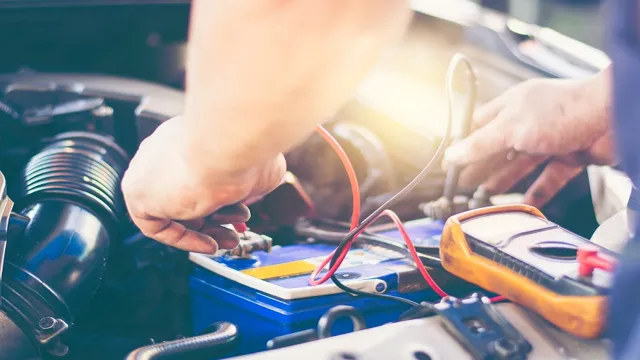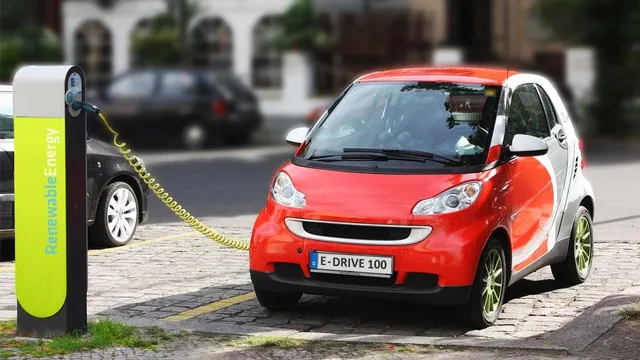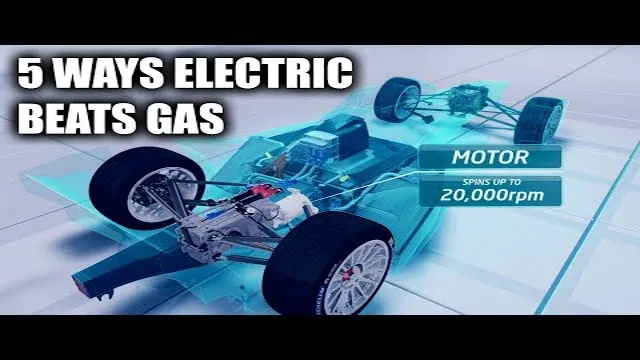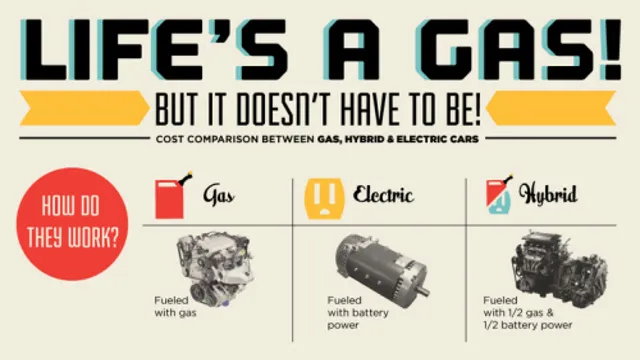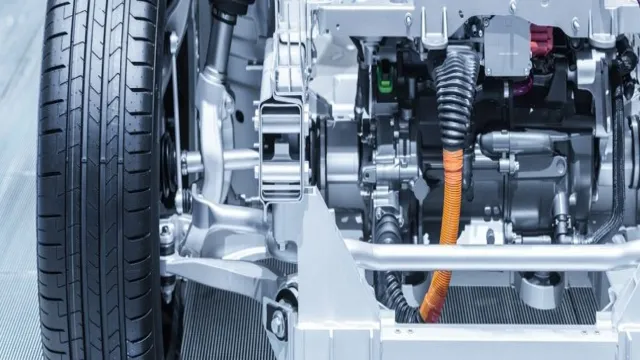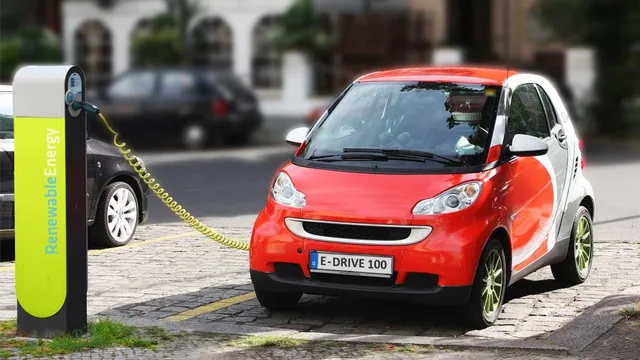Electric Car Maintenance Costs Revealed: How Much Should You Budget?
Electric cars have revolutionized the automotive industry, providing an eco-friendly alternative to petrol and diesel vehicles. However, there is still skepticism about the feasibility of electric cars, particularly when it comes to the maintenance cost. While electric vehicles may have a higher purchase price than traditional cars, the long term costs of ownership are significantly lower.
This is largely due to the lower maintenance costs associated with electric vehicles. In this blog, we will explore the various maintenance costs associated with electric cars and how they compare to traditional vehicles. So, buckle up, and let’s dive into the world of electric car maintenance costs!
The Cost of Owning an Electric Car
When it comes to owning an electric car, one of the most significant advantages is the reduced maintenance costs. Unlike traditional gas-powered cars, electric cars don’t require oil changes, spark plug replacements, or other maintenance tasks that come with internal combustion engines. This means that electric car owners can save a considerable amount of money on maintenance costs over time.
However, there are still some costs associated with owning an electric car. These include battery replacements, tire rotations, and brake pad replacements, all of which are necessary to keep the car running smoothly. Despite these costs, many experts still agree that the overall cost of owning an electric car is lower than a traditional gas-powered car, especially when you consider the long-term savings on fuel and maintenance.
So, if you’re considering making the switch to an electric car, it’s worth doing some research into the maintenance costs in your area to get a better sense of what to expect.
Initial Purchase Price
When considering the purchase of an electric car, the initial price tag can be a bit daunting. Electric cars generally come with a higher initial purchase price than their gas-powered counterparts. However, it’s important to keep in mind that owning an electric car can actually save you money in the long run.
One reason for this is the cost of charging versus the cost of fueling up with gasoline. Charging an electric car can cost significantly less than filling up a gas tank, especially if you take advantage of off-peak charging rates. Additionally, electric cars require less maintenance than gas-powered cars, which can also lead to long-term savings.
Overall, while the initial purchase price of an electric car may be higher than a gas-powered car, the long-term savings and benefits make it a wise investment.
Long-Term Savings
Electric cars are an eco-friendly alternative to gas-powered vehicles, offering drivers a chance to reduce their carbon footprint while also saving money on gas. However, it’s essential to bear in mind that the cost of owning an electric car goes beyond the initial purchase price. One of the biggest considerations is the battery life and replacement, which can come with a hefty price tag.
The good news is that electric cars tend to have lower maintenance costs than traditional cars, thanks to fewer moving parts and less need for oil changes. In the long run, switching to an electric car can save drivers a considerable amount of money on fuel costs, and some countries offer tax incentives and other benefits for electric vehicle owners. Although the initial cost of purchasing an electric car may be higher, the long-term savings make it a worthwhile investment.
So, if you’re considering going electric, be sure to evaluate the entire cost of ownership, from battery replacement to charging expenses, to make an informed decision.
Maintenance Costs for Electric Cars
If you are considering purchasing an electric car, it is important to keep in mind the associated maintenance costs. Unlike traditional gasoline cars, electric cars require less maintenance. This is because they have fewer moving parts and do not need oil changes or regular tune-ups.
However, there are still some expenses you should budget for, such as replacing the battery pack – which can cost several thousand dollars – and routine maintenance such as tire rotations, brake replacements, and inspections. The good news is that since electric cars have regenerative braking, their brake pads can last much longer than traditional cars. Additionally, because electric cars do not emit harmful pollutants, they do not require regular emissions testing.
Annual maintenance costs for electric cars can range from $500 to $1,000, depending on the make and model, but overall, they are less expensive to maintain than their gasoline counterparts. So, while electric cars may have higher upfront costs, the long-term savings on maintenance can make them a wise investment in the future.
Battery Maintenance
Battery maintenance is an essential part of owning an electric car, and it’s worth considering the long-term maintenance costs before making a purchase. Although electric cars require less maintenance than traditional gas-powered vehicles, the battery is the most expensive component of an electric car and needs to be well-maintained. This includes regular charging and avoiding extreme temperatures, as well as ensuring that the battery is not depleted too often.
Neglecting battery maintenance can result in reduced battery life, which can be costly to replace. So, while electric cars may have lower maintenance costs overall, it’s important to factor in the ongoing cost of battery maintenance to ensure that you’re making an informed decision.
Tire Replacement
Tire replacement is one of the most common maintenance costs for electric cars, just as it is for traditional gasoline-powered vehicles. While electric cars are still relatively new to the market, tire replacement is a well-known cost that is incurred over time. The good news is that electric cars often have regenerative braking, which means that the brakes are used less frequently, and therefore, the tires may wear more evenly.
However, electric cars are heavier than traditional cars due to the battery packs, which can lead to more tire wear. It is important to check your tires regularly and replace them as needed to ensure safety while driving. Additionally, properly inflated tires can increase your electric car’s range and overall performance.
By taking good care of your electric car’s tires, you can save money on maintenance costs in the long run.
Brake Replacement
Brake Replacement One of the biggest advantages of owning an electric car is the lower maintenance costs associated with it. Since electric cars have fewer moving parts than their gasoline-powered counterparts, they require less frequent maintenance and servicing. However, just like any other vehicle, electric cars still require certain maintenance, such as brake replacement.
Although electric cars use their regenerative braking system, which converts kinetic energy into electrical energy to recharge the battery, the brake pads and rotors still wear down over time and need to be replaced. The cost of brake replacement for an electric car is comparable to that of a traditional gas-powered car. It’s important to bring your electric car to a specialist mechanic who has experience working with electric vehicles to ensure the job is done correctly.
Proper maintenance of your electric car’s brakes will not only ensure your safety on the road but also prolong the lifespan of your car’s braking system.
Comparing Electric to Gas Cars
If you’re considering making the switch to an electric car, one of your big concerns might be how much you’ll need to spend on maintenance. Fortunately, when compared to gas cars, electric cars may actually end up being the cheaper choice in the long run. This is because electric cars have fewer moving parts compared to gas cars, which leads to lower maintenance costs.
With an electric car, there’s no need to change the oil, replace spark plugs, or change the transmission fluid. Additionally, brakes on electric cars tend to last longer due to regeneration systems that help to slow the vehicle down and charge its batteries at the same time. While there may be some extra expenses for battery and electronics maintenance, overall, electric cars tend to require less maintenance, saving you both time and money.
Maintenance Costs for Gas Cars
When it comes to car ownership, it’s important to consider the maintenance costs associated with gas cars. While gas cars have been the norm for many years, advances in technology have made electric cars a viable alternative. Electric cars have a distinct advantage when it comes to maintenance costs as they require little to no routine maintenance.
This is because electric cars have fewer moving parts than gas cars which require regular servicing. Gas cars also need oil changes, spark plug replacements, and other routine maintenance that can add up over time. However, it’s important to note that electric car batteries do have a lifespan and may need replacement after several years.
Despite this, the overall maintenance costs of owning an electric car are significantly lower compared to a gas car. So if you’re in the market for a new car and want to save on long-term maintenance costs, an electric car might be the way to go.
Environmental Impact
When it comes to the environmental impact, electric cars are the clear winner over gas cars. The reason is that electric cars produce far fewer greenhouse gas emissions compared to their gas counterparts. With electric cars, there’s no emission of the harmful CO2, NOx, SOx, or particulate matter from the tailpipe since they don’t have any exhaust.
In contrast, gas cars emit a significant amount of CO2 and other pollutants that pollute the air we breathe leading to various health issues, including asthma and lung cancer. Choosing an electric car means you’re actively taking steps to reduce your carbon footprint. It’s worth noting that electric cars also have lower operating costs than gas cars, meaning they’re cheaper to maintain and charge.
By driving an electric car, you’re making a positive contribution to the environment, and that’s something we can all be proud of.
Tips for Reducing Electric Car Expenses
When it comes to owning an electric car, many people wonder about how much maintenance they can expect to spend. The good news is that, overall, maintaining an electric car tends to be much less expensive than maintaining a gas-powered vehicle. One reason for this is that electric cars have fewer moving parts, meaning there are fewer things that can break down and require costly repairs.
Additionally, electric cars don’t require oil changes or transmission fluid changes, further reducing maintenance expenses. Of course, like any vehicle, electric cars will still require some routine upkeep, such as tire rotations and brake pad replacements. However, these costs are generally lower for electric cars due to their regenerative braking systems, which help extend the lifespan of brake pads.
Overall, maintaining an electric car can save you a significant amount of money over time, making it a smart choice for those looking to reduce their transportation expenses.
Conclusion
In conclusion, maintaining an electric car is much like maintaining any other vehicle – it requires time, effort, and money. However, the good news is that electric cars generally have lower maintenance costs than gasoline-powered cars due to fewer moving parts and the lack of oil changes. So, while you may spend some money on routine tire rotations and brake inspections, the long-term savings on fuel costs and maintenance make electric cars a smart and sustainable choice for the eco and cost-conscious consumer.
“
FAQs
What is the average annual maintenance cost of an electric car?
The average annual maintenance cost of an electric car is significantly lower than that of a gas-powered car, typically around $500-$700.
Do electric cars require less maintenance than gasoline cars?
Yes, electric cars have fewer moving parts than gas-powered cars, and they do not require the same level of regular maintenance. This leads to lower overall maintenance costs.
What are the most common types of maintenance needed on an electric car?
Common maintenance needed on an electric car includes tire rotations and replacements, cabin air filter replacement, brake fluid flushes, and brake pad replacement.
Are there any special maintenance requirements for the battery in an electric car?
While an electric car’s battery does require maintenance, it is typically less frequent and less expensive than maintaining a gas-powered car’s engine. The most important thing is to ensure that the battery is properly charged and cooled, and that it is periodically inspected for any damage or degradation.


